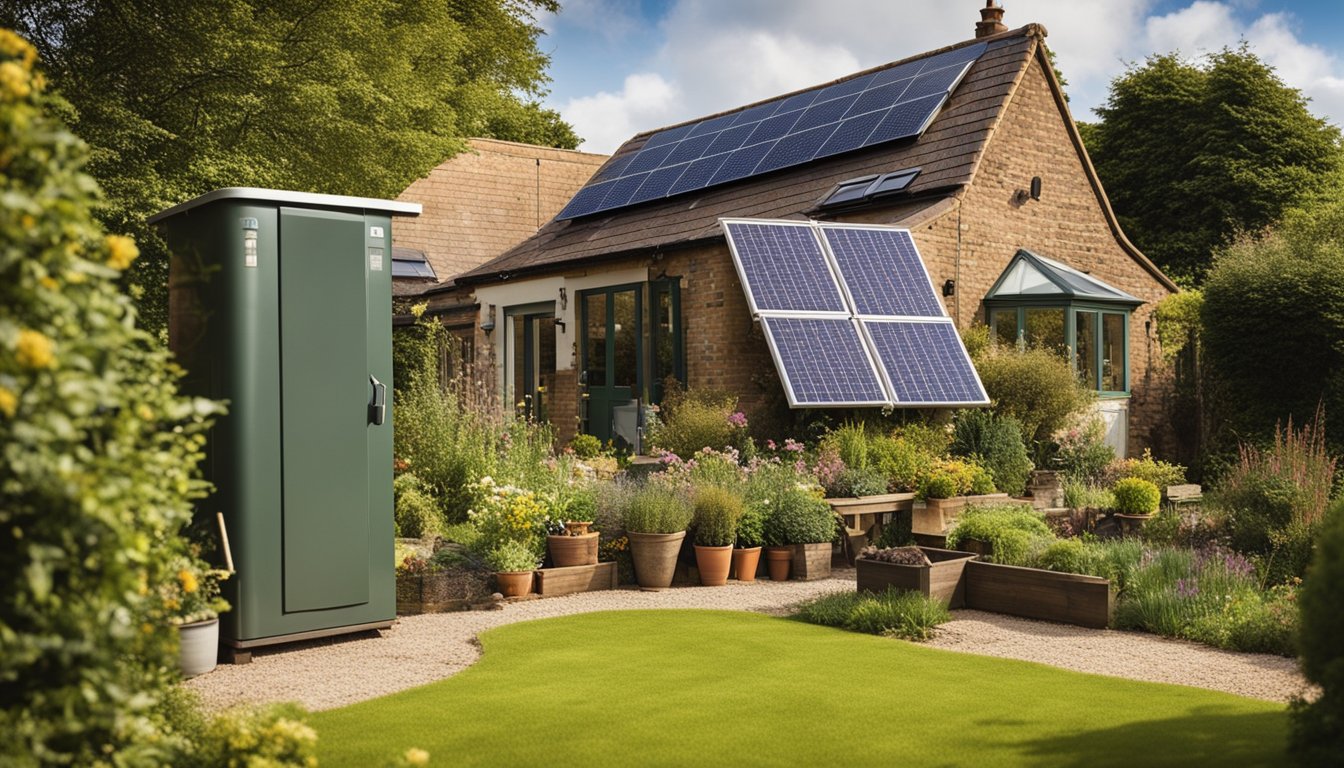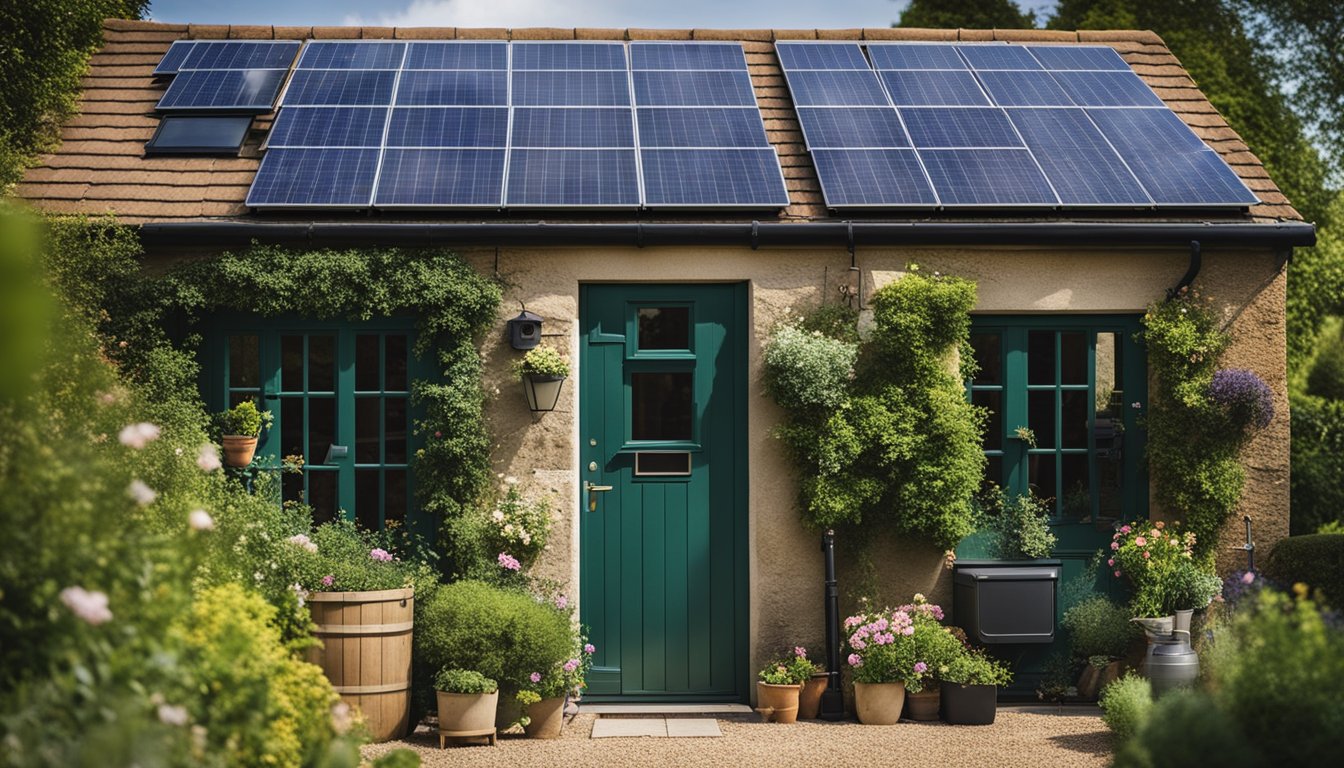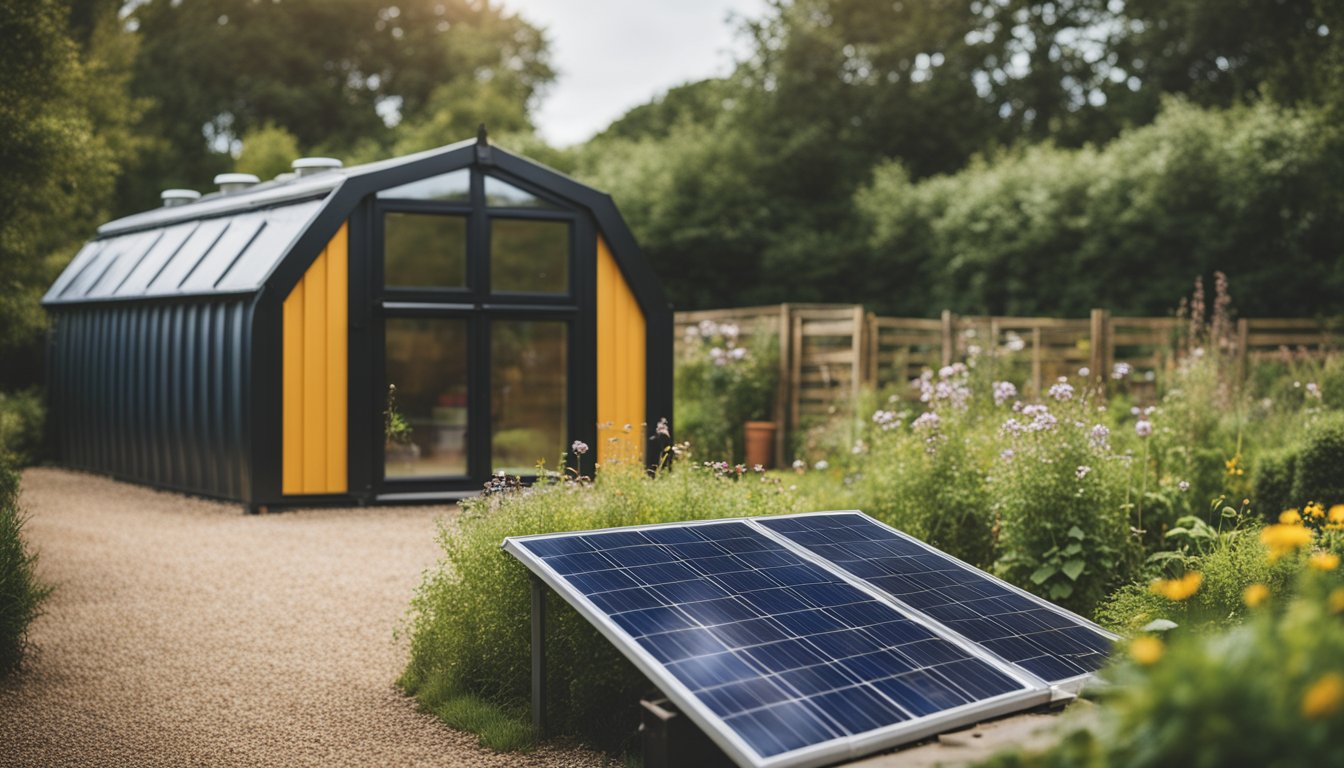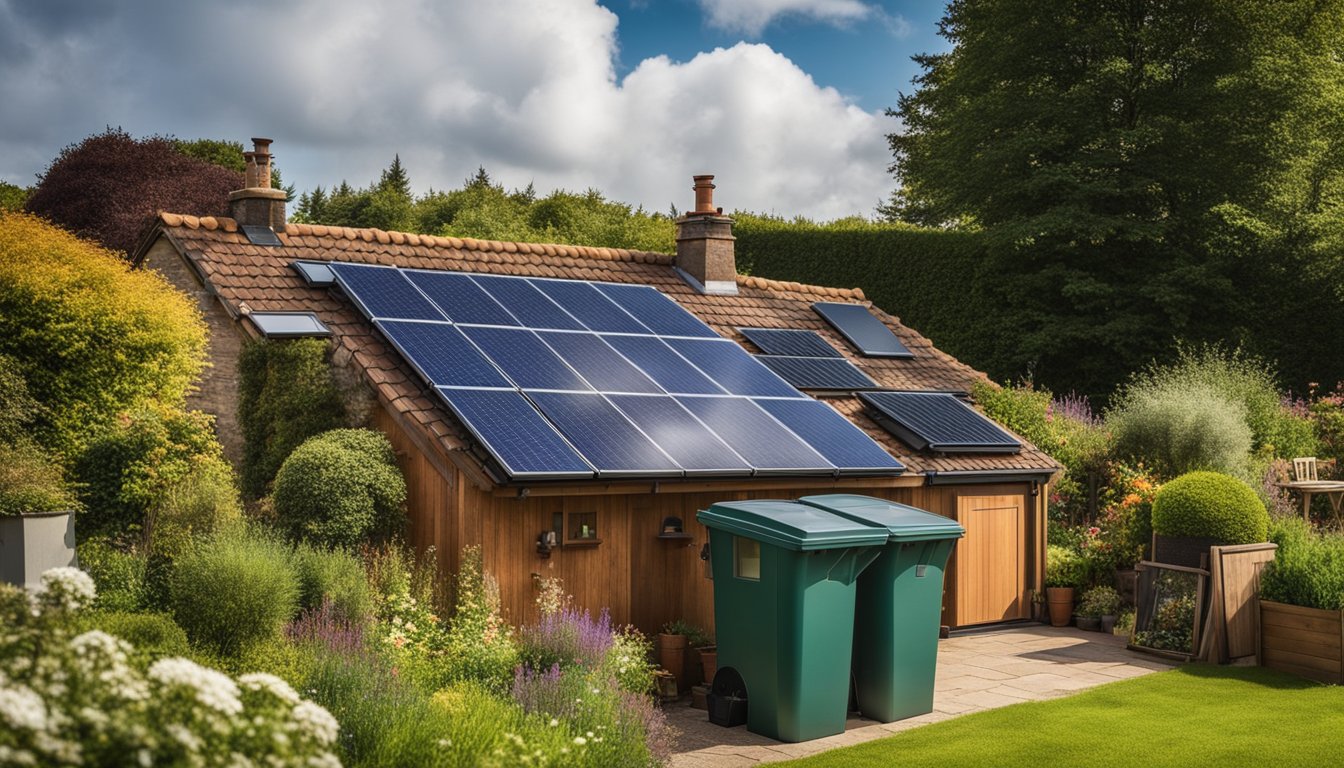Late updated: 07 Oct 2024 14:10
Written by: Oliver Bennett
Eco-Friendly Gadgets For Rural UK Homes: Sustainable Innovations for Modern Living
As we settle into our homes in the rural areas of the United Kingdom, the call for eco-friendly living becomes louder and more urgent. Our landscapes, untouched and pristine, provide a constant reminder of the beauty we are tasked to preserve. With the rise of innovative technologies, we have the opportunity to integrate eco-friendly gadgets right into our daily lives. Choosing devices that harness renewable resources or improve energy efficiency can make a significant difference in reducing our environmental footprint.

Many homeowners might feel that eco-friendly gadgets are a luxury or suited only for urban settings, yet they can be particularly beneficial in rural homes. From solar energy solutions to smart home systems, these gadgets are designed not just for reducing energy bills but also for maximising self-sufficiency in areas where infrastructure may be less developed. The market is brimming with products that are beautifully simple yet technologically advanced, ensuring that rural living doesn't compromise on sustainability.
The transition towards using these gadgets can be straightforward. It's often about making small, smart choices that align with long-term goals for a greener lifestyle. Whether it’s installing a smart thermostat to better manage heating in an old farmhouse or using solar-powered appliances that pay homage to our agrarian roots, the options are plentiful and promising.
Key Takeaways
- Eco-friendly gadgets can reduce our environmental footprint.
- Rural homes benefit from gadgets that improve self-sufficiency.
- Small, smart choices lead to a sustainable lifestyle.
Exploring Eco-Friendly Gadgets for Rural UK Homes

As we aim for more sustainable living, eco-friendly gadgets play a vital role in reducing our carbon footprint. We'll be looking at how smart thermostats, solar energy, and smart plugs can transform rural homes.
The Impact of Smart Thermostats on Energy Consumption
Smart thermostats, like those from Nest and Ecobee, offer significant energy-saving potential. By learning our heating patterns and adjusting the temperature accordingly, these devices enhance our home's energy efficiency.
Key Features:
- Voice control integration (e.g., Alexa).
- Remote temperature management.
- Learning algorithms for personalised comfort.
These features not only help in saving energy but also contribute to lowering utility bills. For rural UK homes, where heating costs can be significant, smart thermostats provide notable financial and environmental benefits.
Benefits of Solar Energy and Solar Panels
Solar energy represents a clean, renewable power source that rural areas can greatly benefit from. Solar panels can reduce reliance on traditional power grids, effectively lowering energy consumption.
Advantages:
- Reduction in energy bills.
- Independence from fluctuating electricity prices.
- Low maintenance requirements.
In rural settings, where there's often more space available, solar panels can be an efficient solution. They harness the sun’s power, making them a sustainable choice for eco-conscious homeowners.
Innovations in Smart Plugs and Home Appliances
Smart plugs and advanced home appliances are revolutionising energy management. With the ability to monitor and control devices remotely, these gadgets enhance our home's overall sustainability.
Notable Features:
- Energy usage tracking.
- Remote on/off functionality.
- Scheduling capabilities.
By using smart plugs, we can ensure our appliances use electricity only when necessary. This helps in reducing unnecessary energy consumption, making them a perfect addition to any eco-friendly home in the rural UK. They provide a simple yet effective way to save energy and reduce our carbon footprint.
Implementing Sustainability in Daily Life

In our quest to incorporate eco-friendliness into rural homes in the UK, small changes can lead to significant improvements. From reducing food waste to conserving water and adopting energy-efficient appliances, these steps contribute to a sustainable future.
Reducing Food Waste with Composting and Sodastream
Reducing food waste is crucial in our daily routine. Implementing composting systems is an effective way to recycle organic waste. Many of us may not realise that composting not only reduces landfill waste but also provides nutrient-rich soil for gardens. It's simple to designate a small area for a compost pile or invest in a home compost bin.
Complementing composting is the use of devices like Sodastream. A Sodastream helps us make sparkling drinks at home, cutting out single-use plastic bottles. This not only reduces waste but is also economically beneficial. We save money and lessen our environmental footprint. Together, these tools help us transform our approach to sustainability.
Conserving Water Usage in Rural Households
Water conservation is crucial, especially in rural areas where water resources might be limited. We can adopt small changes, such as installing low-flow taps and showerheads. These fixtures help to reduce water consumption without sacrificing performance.
In addition to these fixtures, using devices like smart irrigation systems, such as Rachio, can optimise water usage for gardening. These systems adjust watering schedules based on local weather, ensuring our plants are watered efficiently. By taking these steps, we conserve precious water resources and support a sustainable lifestyle.
Adopting Eco-Friendly Home Appliances
Energy-efficient appliances are a cornerstone of sustainable living. We have a choice to impact energy usage by opting for appliances marked with high energy-efficiency ratings. Using a solar-powered device contributes significantly to reducing electricity consumption from non-renewable resources.
In kitchens, replacing traditional kettles with solar kettles and upgrading to eco-friendly dishwashers can greatly reduce energy usage. Bamboo is gaining popularity as a material for home products due to its sustainability. These changes not only help reduce utility costs but also significantly lower our environmental impact, aligning our households with eco-friendly values.
Frequently Asked Questions

In rural UK homes, incorporating eco-friendly gadgets can be tailored to meet specific needs. From innovative heating solutions to sustainable bathroom products, there are various ways to enhance energy efficiency and integrate green technology effectively.
What are the best sustainable technology solutions for heating in rural UK homes?
For heating, we recommend using ground source heat pumps and biomass boilers. These systems are efficient and well-suited for the larger spaces typical of rural properties. Additionally, solar thermal panels can supplement hot water needs, reducing reliance on traditional energy sources.
Which eco-friendly bathroom products are recommended for households in the countryside?
Low-flow toilets and showerheads help conserve water without sacrificing performance. We also suggest using eco-friendly cleaning products, which minimise environmental impact and maintain water quality in septic systems. Bamboo or recycled material bathroom accessories add sustainability to daily routines.
How can one integrate green home technology effectively in a rural setting?
Begin with a comprehensive energy assessment to identify areas for improvement. Solar panels and battery storage systems are excellent for rural homes, reducing dependence on the grid. Smart technology, like programmable thermostats, can further enhance energy efficiency.
What examples of green technology are most suitable for energy conservation in rural properties?
Energy-efficient lighting, such as LED bulbs, drastically reduces electricity usage. Advanced insulation materials also play a crucial role in maintaining indoor temperatures, cutting heating costs. Wind turbines might be viable for homes with sufficient land and wind conditions.
Where can one find reliable suppliers of eco-friendly products tailored for rural UK homes?
Local businesses often have a deep understanding of rural needs and can provide suitable eco-friendly solutions. Online platforms also offer a wide variety of products, filtering options to show those specifically designed for rural use, ensuring quality and reliability.
What are some of the top-rated eco-friendly gadgets that have proven beneficial for rural living in the UK?
Smart irrigation systems help maintain gardens efficiently by adjusting water usage based on weather conditions. Solar-powered battery chargers offer sustainable energy for electronic devices. An air fryer, given its lower energy consumption, is a useful kitchen addition, reducing the carbon footprint without compromising cooking quality.
